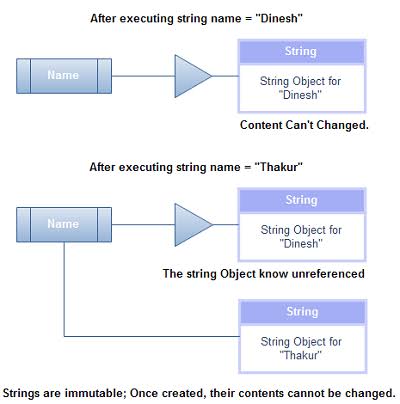Why Are Strings Immutable in Java? Security and Efficiency Advantages
Why Are Strings Immutable in Java? Security and Efficiency Advantages
Blog Article
What Is Immutable Strings and Just How It Functions
In the world of shows, understanding the idea of immutable strings is critical for creating durable and safe and secure applications. Immutable strings refer to strings that can not be changed after they are produced, guaranteeing data integrity and predictability within the code.
The Fundamentals of Immutable Strings
Immutable strings, as a fundamental idea in programming, are personality sequences that can not be altered as soon as they are created. This suggests that once a string is assigned a value, that value can not be modified. In languages like Python and Java, strings are immutable objects, resulting in various ramifications in terms of memory monitoring and information stability.
Among the key advantages of unalterable strings is that they give a sense of security in information adjustment. Because the content of an unalterable string can not be customized, it makes sure that the original information stays intact, decreasing the threat of unexpected adjustments throughout program execution (Why are strings immutable in Java?). This property likewise streamlines debugging procedures, as programmers can rely on that as soon as a string is specified, its value will not be accidentally changed
Additionally, unalterable strings help with efficient memory usage. When a brand-new string is produced based on an existing one, instead of customizing the original string, the brand-new worth is kept separately. This strategy enhances performance by decreasing memory fragmentation and streamlining memory appropriation procedures. On the whole, comprehending the fundamentals of unalterable strings is vital for grasping programs principles and maximizing code efficiency.
Benefits of Unalterable Strings
Building upon the protection and effectiveness benefits of immutable strings, their benefits reach improving code dependability and simplifying concurrent shows tasks. By being unalterable, strings can not be changed after production, which gets rid of the threat of unintentional changes in the data they keep. This intrinsic immutability makes certain that once a string is developed, its value remains constant throughout the program's execution, reducing the chances of pests triggered by unforeseen changes.
Additionally, unalterable strings contribute to code dependability by making it less complicated to reason about the state of a program. Because strings can not be transformed, programmers can rely on that a string will certainly always hold the very same worth, simplifying debugging and maintenance initiatives. This predictability brings about a lot more dependable and stable codebases.

Implementation in Shows Languages
Within different programming languages, the consolidation of unalterable strings is an essential aspect that influences just how information is handled and adjusted within code structures. The implementation of unalterable strings varies across various programming languages, with each language using its very own systems to support this principle.

In contrast, languages like C and C++ do not have integrated support for unalterable strings. Developers in these languages need to by hand implement immutability by implementing guidelines within their code to protect against straight modifications to string things.
Best Practices for Dealing With Unalterable Strings
When managing unalterable strings in shows languages like Java and Python, adhering to ideal techniques makes sure safe and secure and efficient data adjustment. One of the vital best techniques is to use StringBuilder or StringBuffer rather of straight adjusting strings, specifically when dealing with considerable concatenation procedures. These courses supply mutable choices for string manipulation, helping to prevent unneeded memory appropriations and improving performance.
One more finest practice is to make use of string interpolation or format operates provided by the language instead of manual concatenation. This not only enhances readability yet additionally help in stopping typical pitfalls such as unintended string modifications. In advice addition, when dealing with delicate information such as passwords or API secrets, it is crucial to stay clear of saving them as ordinary message in immutable you can find out more strings. Making use of protected storage systems like char varieties or specialized libraries for managing sensitive info assists mitigate safety and security risks connected with unalterable strings.
Real-world Applications and Instances
Discovering sensible applications of immutable strings in various industries discloses their considerable influence on data integrity and system reliability. In the medical care market, immutable strings play a critical duty in making sure the safety and security and discretion of person data. By protecting against unapproved modifications to delicate details such as medical documents and prescriptions, immutable strings aid preserve conformity with stringent personal privacy regulations like HIPAA.
Banks additionally benefit from the unalterable nature of strings to improve the safety of client information and purchase records. Unalterable strings aid stop scams and unapproved modifications to economic information, offering a durable defense against cyber threats and making certain the count on and self-confidence of customers.

Conclusion
In conclusion, immutable strings are dealt with and unchangeable sequences of personalities that offer advantages such as thread safety and security and boosted performance in shows. They are executed in different programs languages to make sure information integrity and safety. Ideal techniques for dealing with immutable strings include avoiding direct alterations and using methods that return new string items. Real-world applications of immutable strings include information encryption, caching, and string control jobs.
Immutable strings refer to strings that can not be changed after they are developed, guaranteeing information honesty and predictability within the code. When a new string is developed based on an existing one, instead than modifying the initial string, the new value is stored separately.In languages like Java and Python, strings are immutable by default, indicating that as soon as a string item is created, its value can not be changed - Why are strings immutable in Java?. Finest practices for working with unalterable strings include preventing direct modifications and using methods that return brand-new string items. Real-world applications of immutable strings include information encryption, caching, and string control tasks
Report this page